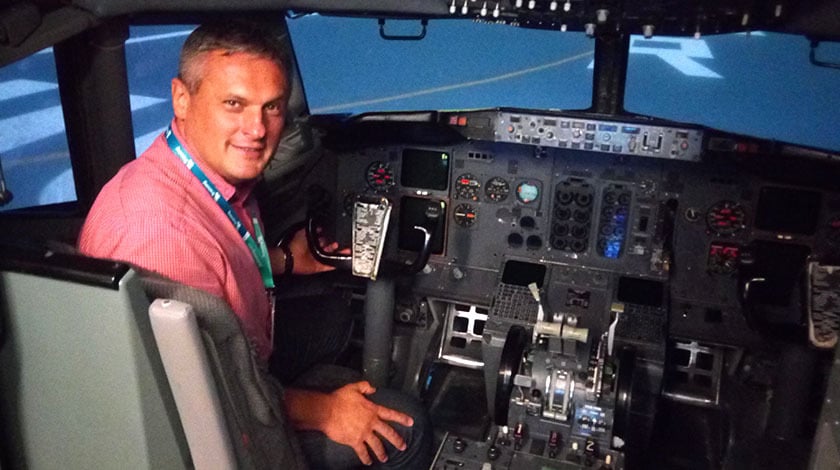Photo: BAA Training
Reading Time: 3 minutesAre First Officers allowed to disagree with Captains? When do pilots retire? Do pilots travel for free? The aviation topic is always intriguing for aviation enthusiasts and even those whose only link to it is their occasional holiday trips by plane. Regardless of which group you attribute yourself to, there must still be a lot of unanswered questions! The good news is that the true expert in the field – Vladimir Milosavljevic, Flight and Ground School Instructor – agreed to answer straightforward questions about the pilot profession (a bit weird-sounding! :)).
Do pilot instructors get bored of their job?
Flying as a flight instructor is not boring. The altitudes we fly provide excellent views of landscapes and sceneries, different cities, nature, countries, etc. Whenever possible (and usually it is 🙂), I tailor flights according to what I would like to see that day down the road. 🙂
It is also cool that we may vary the difficulty level during the flight training, so again, it is never boring. And it is nice to build correct relationships with students, to help them grow as people and professionals – they usually never forget you.
Is it always possible to ensure a smooth landing? Why?
Well, good landings come with experience. So, I would say: yes and no. Usually yes, but sometimes sudden weather conditions, for example, wind gusts and rotors, may make landings more demanding, so some of the landings are not perfect.
During flight training, the instructor must allow the student to land as long as the student’s performance does not impair the safety, and those landings are usually not perfect. 🙂
Are First Officers allowed to disagree with Captains?
Yes. Back in time, a Captain was a little God in the aircraft. Nowadays, CRM (Crew Resource Management) defines different relations in the cockpit – Captain and First Officer act more like colleagues than under a strong hierarchy.
For example, if the First Officer finds out that the Captain is incapacitated, he/she must have the mental power and skills to take over full control of the airplane.
Is the turbulence nothing to worry about? Why?
Depends. For passengers – yes, but for flight crew, nothing in aviation should be labeled as “nothing to worry about.” Nowadays, sophisticated Meteorological equipment (ground and airborne) provides precise information on what flight crew should avoid and what to expect. However, caution is always necessary as planet weather changes and new weather phenomena occur in areas that didn’t exist before. I am talking mainly about flying into very low atmospheric pressure areas that usually produce the most demanding weather.
Recent research proved that the arousal level of the flight crew should be kept at about 60% of the maximum all the time.
Do pilots have enough rest time between the flights?
I would propose more rest and more preparation and training time for pilots and the reason is the following. Lately, flight time limitations are constantly going up. The explanation is that airline equipment, especially autopilots coupled to EFIS (Electronic Flight Instrument System), are very sophisticated, decreasing the cockpit workload. While it is true, this also impairs pilot manual flying skills (as those are usually unnecessary). Now the question is, are we still safe when some parts of the equipment do not work as planned? Unfortunately, some accidents proved that the pilots need more classic/manual skills/training and more rest time between the flights. Compared to the other aviation expenses, the flight crew is not that expensive, so, in my point of view, rest and more preparation and training time for pilots are needed.
Hopefully, you found it engaging to read Vladimir’s thoughts on the questions raised! His opinion can definitely be trusted or at least taken seriously as he has extensive experience in various commercial operations and flight training. Stay tuned as more such mini-interviews with other instructors at BAA Training are being prepared for publishing!

